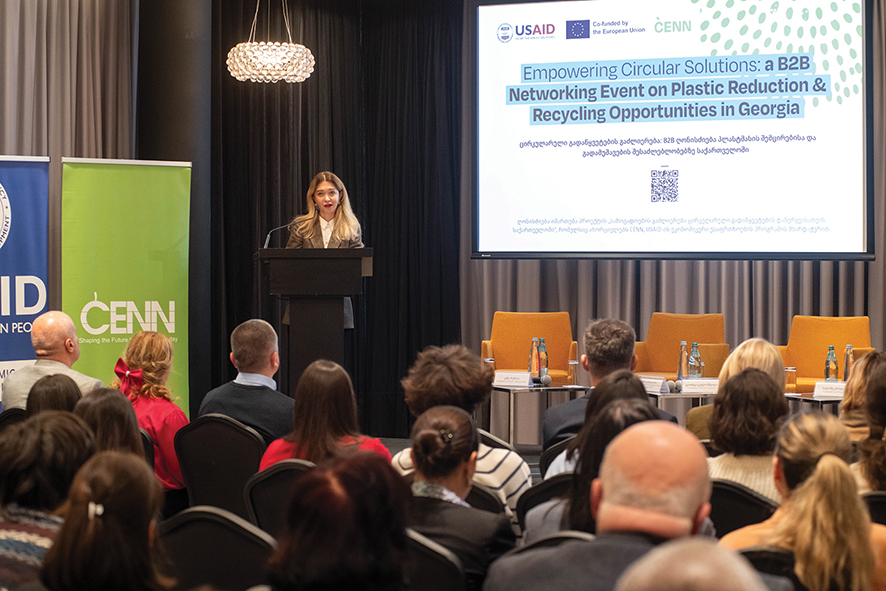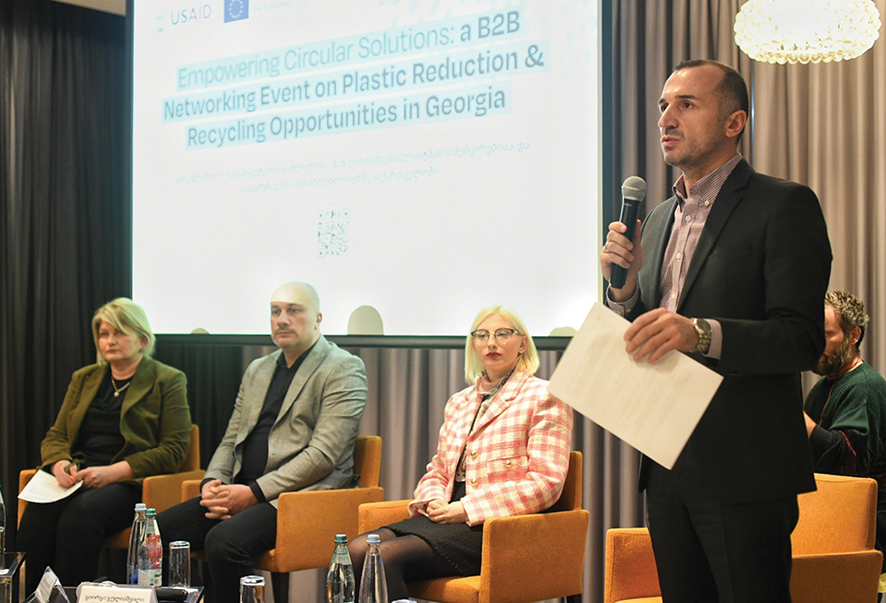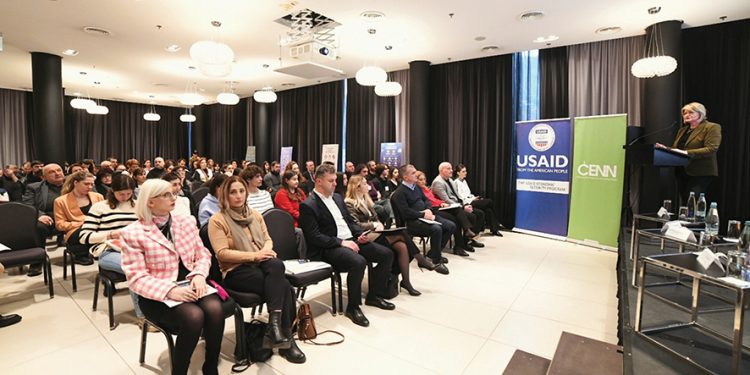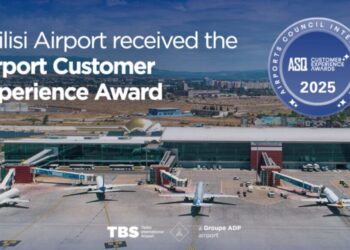Plastic waste is fast becoming a widely recognized problem. While getting rid of plastic waste is the primary environmental problem, the majority of plastic waste does not get reused or recycled, and while the majority of types of plastic are in fact recyclable, most municipal governments do not have the infrastructure in place to carry out this energy-intensive process.
Against the background of these challenges, the development of a “circular economy” is crucial for the future of our planet and the environment. Circular economy is based on the notion of maintaining the value of products, materials and resources within the economy for as long as possible, consequently minimizing the generation of waste which is produced. This concept helps to shape an essential part of the EU’s plans to develop a sustainable and more resource efficient economy, with plastics forming one of the top five priority areas to be addressed.
To raise awareness on this crucial matter and contribute to sharing experience on reducing plastic waste, CENN, with the support of the USAID Economic Security Program and the European Union, on December 22 in Tbilisi hosted a B2B Networking Event on Plastic Reduction Opportunities and the Recycling Landscape. The event was held within the framework of the project “Empowering People for Circular Solutions in Georgia”, which is implemented by CENN with the support of the USAID Economic Security Program.
This event aimed to facilitate knowledge sharing and collaboration among stakeholders involved in the circular economy sector with the help of interactive sessions.

“The USAID Economic Security Program, in collaboration with CENN, has been implementing the awareness-raising campaign on reducing the use of plastic, minimizing plastic waste and using alternative ways instead,” Maia Nizharadze, Representative of USAID Economic Security Program, said. “As part of this campaign, over three months, many awareness raising materials were prepared, such as articles, TV coverage, etc., to inform the public about solutions to reducing plastic and using alternative methods. The B2B event held at the end of the campaign aimed to let various sectors of society, private companies, government representatives, and NGOs among them, to share their knowledge and experience on this matter and draw up future ways of cooperation to continue creating a more sustainable economy together, with joint forces.”
Sharing success stories of recycling plastic to motivate businesses and citizens to follow in their footsteps
The forum was opened with welcoming remarks by the Deputy Head of the Department of Waste and Chemical Substances Management, Irma Gurguliani, the Chief of Party of USAID Economic Security Program, Marika Shioshvili, and the Deputy Director of CENN, Nino Shavgulidze.
After the welcoming remarks, the event hosted two thematic panel discussions, where the representatives of the government, private, and non-governmental sectors spoke about the possibilities of solutions for the country’s circular transition. The participants of the first panel focused on the future policy of the country in terms of integration with the European Union. Opportunities for plastic packaging processing and manufacturing were also discussed.
The second panel discussion was devoted to the presentation of private sector initiatives, where both HORECA and other private sector representatives shared success stories of plastic reduction.
The parties involved in the discussion highlighted the need to strengthen sustainable solutions, especially now, with Georgia having received the EU Candidate Status. And, with sustainability being among the main priorities on the EU agenda, introducing “green” solutions and reducing plastic waste will be an important step to get Georgia closer to membership of the European Union.
“We organized many awareness raising activities during this period, with the participation of both the civil sector and private businesses. We tried to share as many success stories of recycling plastic in this period as possible, to motivate other businesses and ordinary citizens to follow in their footsteps,” Ana Petriashvili, Communications Specialist, CENN, noted. “Today’s B2B event also hosted the awards ceremony of journalists with exciting ideas about circular solutions. Such interest from the public gives us hope that the circular economy will further develop in Georgia, with all sectors of society acknowledging their share of responsibility in this process.”

At the end of the event, the journalists who participated in the joint grant competition of the CENN and USAID Economic Security Program and prepared media products on the possible ways of plastic waste reduction and recycling were awarded.
The B2B event brought together up to one hundred stakeholders. Among the attendees were representatives of the Georgian government, waste recycling businesses, HORECA and other private sector, local and international organizations, and the media. Every participant had the opportunity to engage in the discussions, share thoughts, and talk about today’s challenges and opportunities.
“Recently, we’ve been getting close to a systemic approach to waste management,” said Giorgi Guliashvili, President of the Waste Management Association. “Plastic pollution is a global challenge, including in Georgia. Sadly, we couldn’t start systemic collection and recycling of plastic waste until now, and I believe that such initiatives, including those of the private sector and NGOs, and their involvement in this process, is of utmost importance. For our part, we, the representatives of Waste Management Association, are ready to support them on this path, to receive and recycle the plastic waste. The rate of plastic production is still higher than its recycling rate, and we welcome all such initiatives and events aimed at strengthening circular solutions. This is crucial for more sustainable economy and for the future of our country.”














